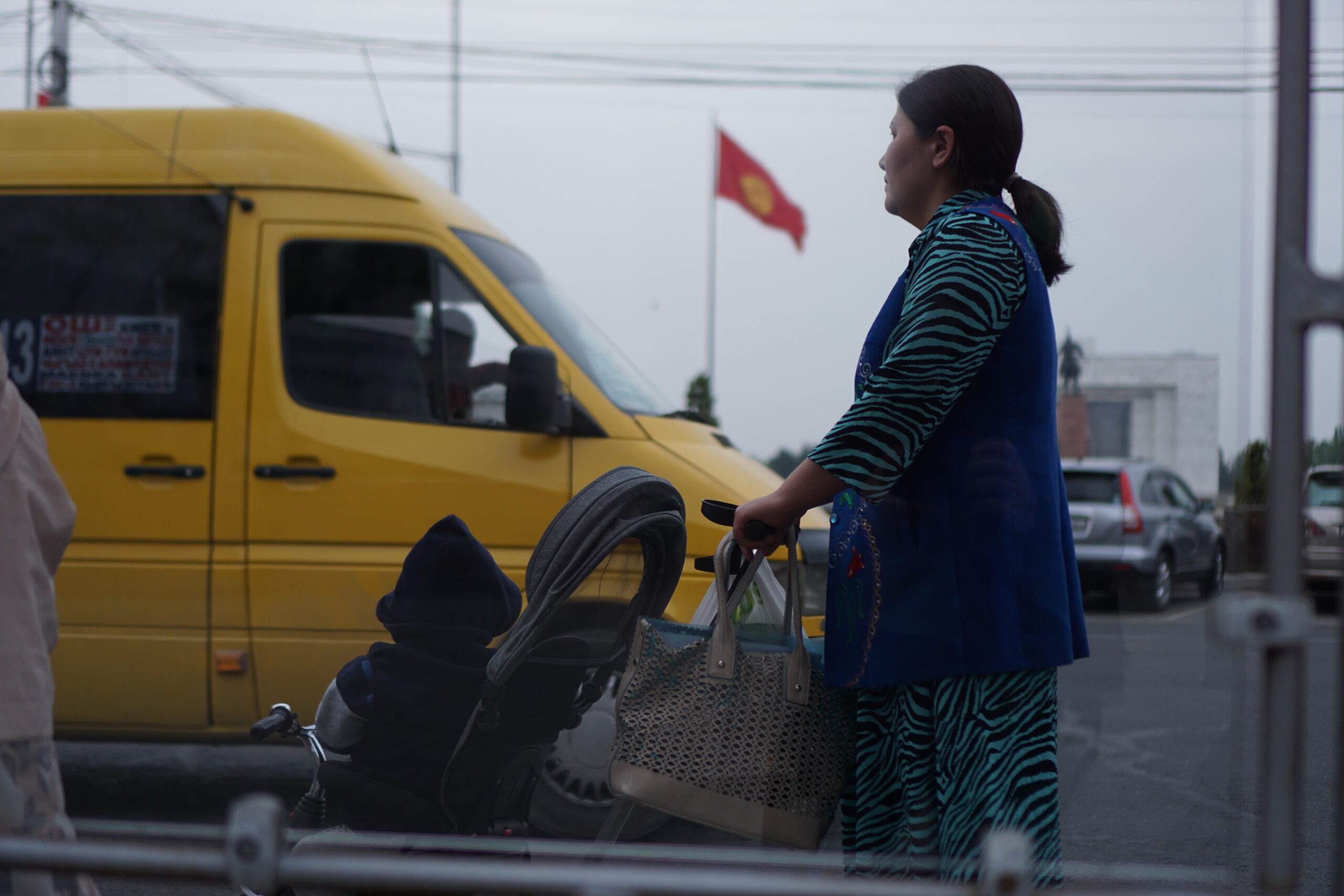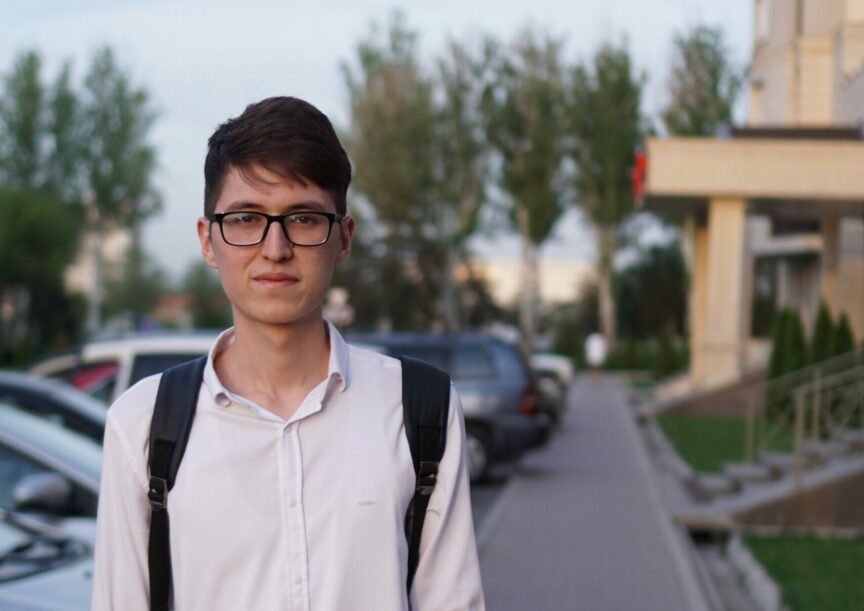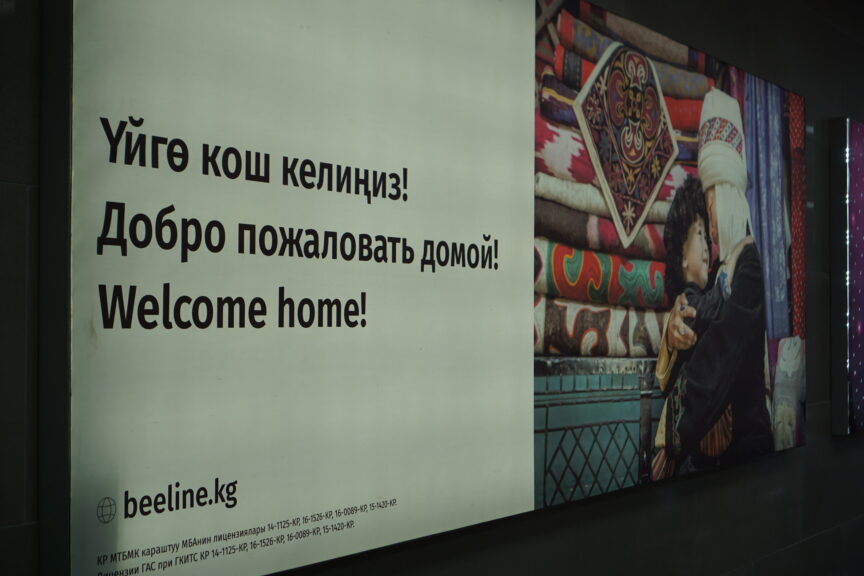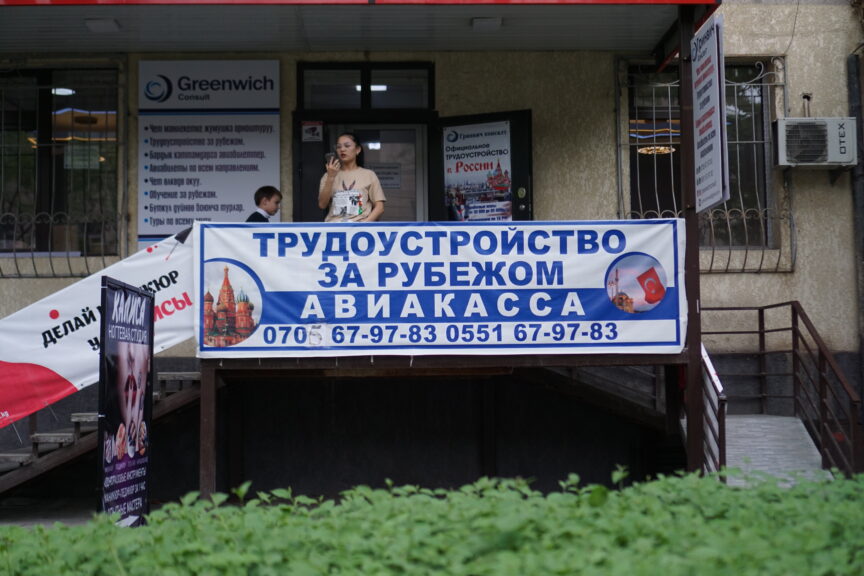Central Asia Will Be Collateral Damage in the Ukraine Crisis

Since its invasion of Ukraine in February, Russia’s economy has been heading towards crisis. Numerous international companies have curtailed operations in the country, while hundreds of thousands of well-educated young professionals have fled abroad, dealing a hard blow to those sectors of the economy that rely on their skills and purchasing power.
But this crisis won’t hit Russia alone: post-Soviet republics in Central Asia are also in trouble. Millions of migrants from Uzbekistan, Tajikistan and Kyrgyzstan have over the last 30 years become a key source of cheap labour for Russia’s service, agricultural and construction sectors. While the statistics are unreliable, experts estimate there are about a million Kyrgyz, at least as many Tajik and more than three million Uzbek migrants working in Russia. The money they send back to their families has become a significant source of income for their home countries; in fact, Kyrgyzstan and Tajikistan are some of the most remittance-reliant countries in the world, with around 30% of their GDP coming from such transfers. With the Russian economy tanking, these countries now risk being dragged down too.
‘Like a hamster on a running wheel’.
“Jobs in Russia are disappearing. They say that there will only be work for Russians from now on”, says Atai Omurzakov, who recently returned home to Kyrgyzstan from Moscow where he had spent several months working in the restaurant industry. Now he sits in his favourite café in his home city, the capital of Bishkek, and tells his story.
The first time Omurzakov went to Russia was shortly after graduating high school, at 18. The money he sent home was a lifeline for his family. His father had once held a relatively well-paid job, working in the country’s biggest gold mine, Canadian-owned Kumtor. But when respiratory problems caused by the dust he was breathing in forced him to quit, his family faced financial hardship. It then fell to his oldest child to go to Russia to support the family from there.

Life in Moscow was tough, as it is for many Central Asian migrants. “I worked in a kitchen, six days a week, 13 hours a day, plus an hour on the metro to and from work – like a hamster in a running wheel”, Omurzakov remembers. Shifts were stressful, and he often had to skip lunch breaks. To save on rent, he shared a room with three fellow workers. Hate from Russian nationalists and constant document-checks by corrupt police officers looking for bribes are additional headaches for many migrant workers.
Yet despite these conditions, there is hardly a Kyrgyz family that doesn’t have family members working periodically in Russia. Now that the country’s economic outlook is grim, they are facing an uncertain future.
Leave or remain?
How workers will adapt remains to be seen. Judging by previous crises, it’s likely many will return to their home countries. “We saw a large departure in connection with the pandemic. The number of migrants in Russia had only recently recovered to pre-pandemic levels”, says Sergey Abashin, a professor at Saint Petersburg’s European University who follows trends in Central Asian migration to Russia. “Now we’re seeing a number of economic factors, like restrictions on currency transfers, company closures and inflation, that should theoretically lead to a similar wave of return migration.”
But while there has been some uptick in returns to date, there hasn’t yet been an exodus. “We’re still only at the beginning of this process”, Abashin explains. “For now, people are opting to wait and see.”
For some, however, the problem was more urgent. Khan, who asked for his surname not to be published, worked until recently at a central Moscow café in conditions similar to those experienced by Omurzakov, but with a different legal status. Like thousands of other Kyrgyz workers in Russia, he’d grown tired of the hassle that comes with being a foreigner, and some years ago acquired Russian citizenship. This, however, has meant he can be drafted into the Russian military. “I know guys who were taken in, one of them was shot in the chest, another in the leg”, Khan explains over a cup of green tea in his native Bishkek. “I didn’t want to risk being sent to the front, so I left the country in late March.”
That conditions in the Russian labour market were also getting tougher had already become apparent by then. “When the war started, I made 200 rubles an hour. After international companies like McDonalds pulled out of Russia, their employees came to us [the café] looking for work. There were just crazy many people in need of work, and one week later I suddenly only got paid half of what I had made before”, Khan explains. Omurzakov, too, has heard about similar trends from relatives still in Russia: “I have a cousin who drives a cab in Moscow, but he gets fewer and fewer rides. People just aren’t taking taxis as much as before”, he says.
While the war has therefore made it less appealing for Central Asian workers to stay in Russia, they have few alternatives. “Returning home doesn’t solve the problem of not having a job. It is only a temporary solution”, explains Asel Doolotkeldieva, a political scientist based in Bishkek. She considers a large-scale return of migrants unlikely. Instead, she believes there might even be an opposite trend as some families may attempt to compensate for lower incomes by having more relatives seek work in Russia.

Rising poverty.
Either way, the question of where migrants choose to weather the crisis is, according to Doolotkeldieva, not the heart of the matter. Regardless of whether migrants choose to stay in Russia, remittances to families back home are bound to decrease. “Around 70% of the money being sent home is spent on food, and the rest goes largely on other basic needs, like clothing. Remittances are directly related to poverty. We saw this during the pandemic, when a reduction in remittances set back progress in poverty reduction by ten years”, she explains.
Since Russia is by far the most common destination for migrants from Kyrgyzstan, any crisis in the former is a heavy blow to the poor in the latter. What Doolotkeldieva is most worried about is that Kyrgyzstan’s government doesn’t seem to be taking the problem seriously. As she sees it, massive migration to Russia has become a convenient way for the state to dodge dealing with social problems at home. “Each year, organisations working on migration suggest that we need to at least diversify where our migration flows go. And every year, the government says ‘oh, yeah right’ and just forgets about it”, she says with frustration.
Someone who knows this all too well is Ayimzhan Imanalieva, who works for an NGO assisting Kyrgyz migrants with practical information and legal advice. She recently participated in a roundtable discussion with Kyrgyzstan’s deputy minister of labour looking at alternative destinations for the country’s economic migrants, which didn’t fill her with hope. While there are official agreements with countries like South Korea and several EU states, they hardly present a quick solution for Kyrgyzstan’s migrant population.
“These alternatives promise decent, legal work, but we are only talking about roughly 10,000 spots a year, which is nothing compared to the million or so who work in Russia”, Imanalieva explains. “Representatives for labour agencies that arrange visas and work in the EU were also saying that the quota had been cut, apparently due to the great influx of Ukrainian refugees there.”

Nevertheless, Omurzakov, Khan and others still have their hopes set on finding work abroad beyond Russia. Khan and several of the friends he shared a room with in Moscow are now planning on going to Turkey, or possibly Dubai. Khan’s father, who has previously worked on South Korean construction sites, is now looking even further afield: “He is talking about flying to Mexico, and then crossing the border into the US. But that is expensive and risky”, Khan says with unease.
Omurzakov is currently studying to improve his English. “I’ve heard about jobs in agriculture in England, which you can get for six months at a time”, he says. “But it’s expensive, you have to pay like a thousand dollars up front, and then you get paid only later. But in Europe, at least, you won’t have to work more than eight hours a day, and you won’t be exploited”, he says hopefully.
Volodya Vagner is a freelance journalist based in Sweden, covering culture and politics.


